The 1st International Conference on Sustainable Approaches to Address Global Food Security Challenges & Industrial Expo aims to bring together academics, researchers, policymakers, and industry leaders to explore innovative and sustainable strategies for tackling the pressing challenges of global food security. This conference serves as a platform to promote actionable solutions for building a resilient food system that aligns with the United Nations Sustainable Development Goals (SDGs).
Key topics include advancements in sustainable agriculture, climate-smart food systems, food safety, and innovations in food technology. Alongside the conference, the Industrial Expo will showcase cutting-edge technologies, upcycled food solutions, and groundbreaking innovations in the food and agriculture sectors, offering unique opportunities for collaboration and knowledge exchange. This event is a call to action for developing transformative strategies to ensure global food security and environmental sustainability.
Important Dates: 2025-19-02
Venue: Jinnah Auditorium, Government College Women University Faisalabad, Punjab, Pakistan.
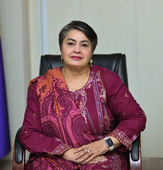 Prof. Dr. Kanwal Ameen (T.I.) Vice Chancellor, GCWUF Prof. Dr. Kanwal Ameen (T.I.) Vice Chancellor, GCWUF |
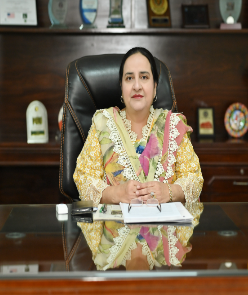 Prof. Dr. Zill-i-Huma Nazli Pro Vice Chancellor Prof. Dr. Zill-i-Huma Nazli Pro Vice Chancellor |
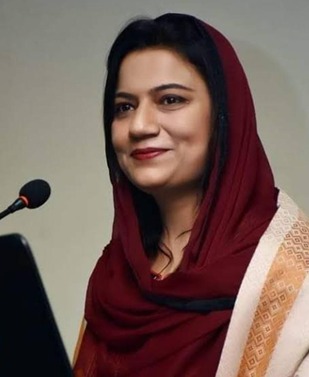 Dr. Ayesha Sameen Chairperson Faculty of Food Science Dr. Ayesha Sameen Chairperson Faculty of Food Science |
Prof. Dr. Imran Pasha
Dean, FFNHS, NISFAT, UAF, Faisalabad,
Title :
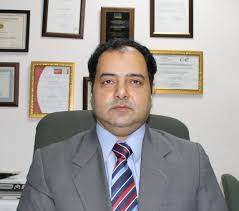
Prof. Dr. Saeed Akhtar
BZU Multan,
Title :
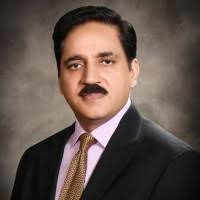
Prof. Dr. Faqir Muhammad Anjum
CEO IFANCA. Pakistan ,
Title :
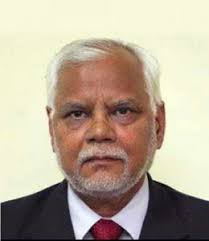
Prof. Dr. Javed Aziz Awan
Country Director IFANCA Pakistan,
Title :
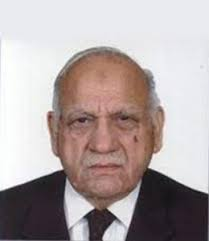
Prof. Dr. Tahir Zahoor
Dean Faculty of Allied Sciences NIU, Lahore,
Title :

Prof. Dr. Muhammad Riaz
Chairman Department of Food Safety and Quality Management, Faculty of Food Science and Nutrition, BZU Multan,
Title :
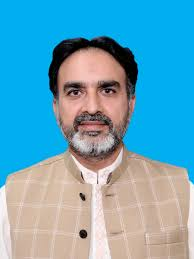
Prof. Dr. Umar Farooq
Dean Faculty of Food and Home Sciences, MNS-UA, Multan,
Title :
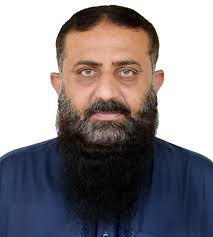
Prof. Dr. Umar Farooq
Dean Faculty of Food and Home Sciences, MNS-UA, Multan,
Title :
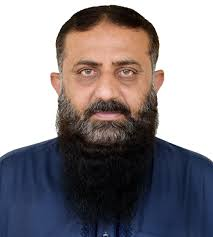
Prof. Dr. Muhammad Azam Kakar
FAO-PAK,
Title :

Prof. Dr. Aamir Shahzad
Normandy University, France,France
Title : Sustainable Food Systems & Nutritional Challenges
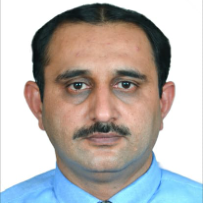
Sustainable food systems are critical in addressing the growing nutritional challenges faced by populations worldwide. These challenges include the rise of both undernutrition and obesity, often occurring simultaneously, and the unequal access to nutritious food across different regions. Sustainable food systems focus on producing food in ways that are environmentally responsible, economically viable, and socially equitable, ensuring long-term food security for all. However, achieving sustainability in food production is complex, as it requires balancing the needs for increased food production with environmental conservation, climate resilience, and the health of ecosystems. Additionally, shifting dietary patterns, influenced by urbanization and globalization, have led to greater consumption of processed and nutrient-poor foods, exacerbating public health concerns. Addressing these issues requires a multi-faceted approach, including the promotion of healthy, plant-based diets, reducing food waste, and integrating sustainable agricultural practices such as agroecology and organic farming. Furthermore, policy interventions that encourage sustainable production and consumption, alongside global efforts to enhance food distribution and accessibility, are necessary to overcome these nutritional challenges. Ultimately, creating sustainable food systems is a critical step towards improving global nutrition, health, and well-being, while ensuring that the food systems of the future are resilient, equitable, and environmentally sound. Keywords: Sustainable food systems, nutritional challenges, food security, agroecology, dietary patterns.
Dr. Hafiz Ansar Rasul Suleria
University of Melbourne, Australia,Australia
Title : Harnessing Marine Biodiversity: Innovative Approaches for Bioactive Molecule Extraction and Drug Discovery
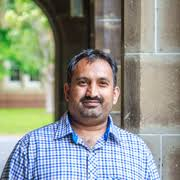
Marine organisms are increasingly being investigated as sources of bioactive molecules with therapeutic applications as nutraceuticals, pharmaceuticals and development of novel foods. Recent trends in functional and nutraceutical foods have demonstrated that bioactive molecules play a major therapeutic role in human disease, therefore nutritionists, biomedical scientists and food scientists are working together to discover new bioactive molecules that have increased potency and therapeutic benefits. Marine life constitutes almost 80% of the world biota with thousands of bioactive compounds derived from marine invertebrates such as sponges, mollusks, sea hares, sea slugs and other marine organisms. These bioactives possess antibiotic, anti-parasitic, anti-viral, anti-thrombotic, anti-inflammatory, anti-fibrotic and anti-cancer activities. They are inhibitors or activators of critical enzymes, agonists or inhibitors of transcription factors, competitors of transporters and sequestrants to modulate various physiological pathways. The current talk summarises the sulphated carbohydrates present in blacklip abalone (Haliotis rubra), mainly focusing on isolation, identification, mode of action and underlying mechanisms of these sulfated carbohydrates with special attention to anti-thrombin potential. Keywords: Marine bioactives, Functional & nutraceutical foods, Marine drugs
Dr. Ali Raza
San Diego State University, USA,USA
Title : Flavor and Consumer Acceptance of Sustainable Plant-Based Seafood Alternatives

The growing demand for sustainable food options has spurred the development of plant-based seafood alternatives, offering a more eco-friendly and ethical choice for consumers. This study explores the flavor profile and consumer acceptance of plant-based seafood alternatives, focusing on their sensory attributes and market potential. Various plant-based seafood products were analyzed for their flavor, texture, and overall sensory appeal, comparing them to traditional seafood. Consumer acceptance was evaluated through sensory panels and surveys to assess preference, willingness to purchase, and perceived sustainability. The results indicate that while flavor and texture are critical factors influencing consumer acceptance, plant-based seafood alternatives can offer a satisfactory alternative when properly formulated. Additionally, the study highlights the role of consumer education in improving acceptance and enhancing the perception of sustainability. These findings contribute to understanding the viability of plant-based seafood as a sustainable food source, promoting further innovation in this emerging market. Keywords: Plant-based seafood, Flavor profile, Consumer acceptance, Sustainability, Sensory evaluation
Dr Zafarullah Muhammad
Anhui Polytechnic University, ,China
Title : Enhanced Bioaccessibility of Microencapsulated Puerarin Delivered by Pickering Emulsions Stabilized with OSA-Modified Hydrolyzed??Pueraria montana??Starch: In Vitro Release, Storage Stability, and Physicochemical Properties

Puerarin, a bioactive flavonoid found in the root of??Pueraria lobata, is claimed to possess various medicinal properties. However, the application of puerarin in functional foods is currently limited by its poor bioaccessibility. Existing delivery systems that guarantee puerarin bioaccessibility involve complex preparation steps and safety issues. Therefore, this study aimed to modify starch is efficiently and economically fabricate a food-grade Pickering emulsion with co-encapsulated puerarin to improve the bioaccessibility of puerarin. As the emulsifier, high amylose kudzu starch was pretreated by acid hydrolysis, afterward modified by different concentrations of octenyl succinic anhydride (OSA), and their emulsions were evaluated. The XRD, SEM, and FTIR results indicated the successful modification. ??-potential, mean droplet size, and emulsification index (EI) of the emulsions confirmed that modified starch with a higher degree of substitution (DS) was more effective for enhancing storage stability. The results of encapsulation efficiency (EE) and retention degree of Pue after 16 d also proved the assumption. Moreover, the Pickering emulsions help for Pue's controlled release in vitro. The food-grade Pickering emulsion loading Pue has promising essential implications for designing effective delivery systems for encapsulating puerarin and other bioactive components. Keywords: Puerarin, Pickering emulsion, Bioaccessibility, Starch modification, Encapsulation efficiency
Dr. Rabia Ramzan
Anhui Polytechnic University,China
Title : The ABC31transporter regulate the export system of phenylacetic acid as a side-chain precursor of beta-lactam in monascus ruber M7
52847348fd95af6eea747ae0d64202880da28d.jpeg)
Penicillin G (PG) production is compartmentalized, forcing penicillin and its precursors to traverse membrane barriers. Phenylacetic acid CoA ligase is the enzyme which stimulates the CoA activation of the side chain precursor phenylacetic acid (PAA), and PAA is??obligatory for penicillin G production. Whereas the PAA transportation system is unclear yet, so??the engagement of transmembrane transporter proteins can only be postulated. To discover ABC transporters involved in the activation of the side chain of??PAA precursor, we examined the expression of all 48 ABC transporters found in M. ruber's genome, culturing??with and without PAA. When cells are cultivated or exposed to significant doses of PAA, Abct31 is considerably upregulated. The gene deletion (??abct31) has been used to find out the role of the abct31 gene as a transporter. The feeding of PG pathway precursor side chains and amino acids, such as D-valine, phenylacetic acid, and L-cysteine, was done to determine the involvement of the ??abct31 gene as a phenylacetic acid transporter. The findings indicated??that feeding D-valine, L-cysteine, and phenylacetic acid??had a substantial impact on the morphologies and production of secondary metabolites (SMs) of ??abct31 strain including??M. ruber??M7. Consequently, the sensitivity to weak acids and PAA was significantly increased. The findings of UPLC-MS/MS analysis??demonstrated that ??abct31 did not interrupt??the synthesis of PG in M. ruber M7. According to the results it could be determined that ??abct31 is involved in resistance and detoxification of the weak acids including the phenylacetic acid in M. ruber??M7. Keywords: ABC transporters, Secondary metabolites (SMs), Phenylacetic acid, Amino acid, Weak acid
Prof. Dr Shehzad Hussain
King Saud University ,Saudi Arabia
Title : Role of non traditional hydrocolloids in food applications
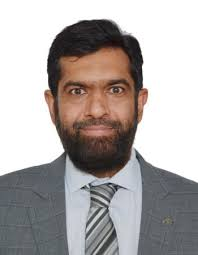
TITLE:
ABSTRACT PREPARATION:
Important Note:
After evaluation of abstracts submitted to conference, recommended abstracts will be presented in poster session and evaluated by the technical committee to award/nominate the best posters.
Depending upon the domain of research poster can be prepared but the poster should have following components.
1.Title
2.Logos
3.Author’s name and affiliation
4.Keywords: 3-5
5.Introduction
6.Methods
7.Results
8.Conclusion and recommendations
7.Acknowledgments/further information
8.References
Poster size: ¾ ft
Prof. Dr. Aysha Sameen (Chairperson, Dept. of Food Science & Technology, GCWUF)
Phone: 03326610733
Email: conference2025@gcwuf.edu.pk
Organizing Secretary: Dr. Saima Tehseen
Phone: 03321844815
Email: saimatehseen@gcwuf.edu.pk
For Hospitality: Dr. Rizwana Batool
Email: dr.rizwanabatool@gcwuf.edu.pk
 Timetable of 1st International Conference entitled "Sustainable Approaches to Address Global Food Security Challenges & Industrial Expo", Day 1
Timetable of 1st International Conference entitled "Sustainable Approaches to Address Global Food Security Challenges & Industrial Expo", Day 1
 Timetable of 1st International Conference entitled "Sustainable Approaches to Address Global Food Security Challenges & Industrial Expo", Day 2
Timetable of 1st International Conference entitled "Sustainable Approaches to Address Global Food Security Challenges & Industrial Expo", Day 2
 Timetable of 1st International Conference entitled "Sustainable Approaches to Address Global Food Security Challenges & Industrial Expo", Day 3
Timetable of 1st International Conference entitled "Sustainable Approaches to Address Global Food Security Challenges & Industrial Expo", Day 3